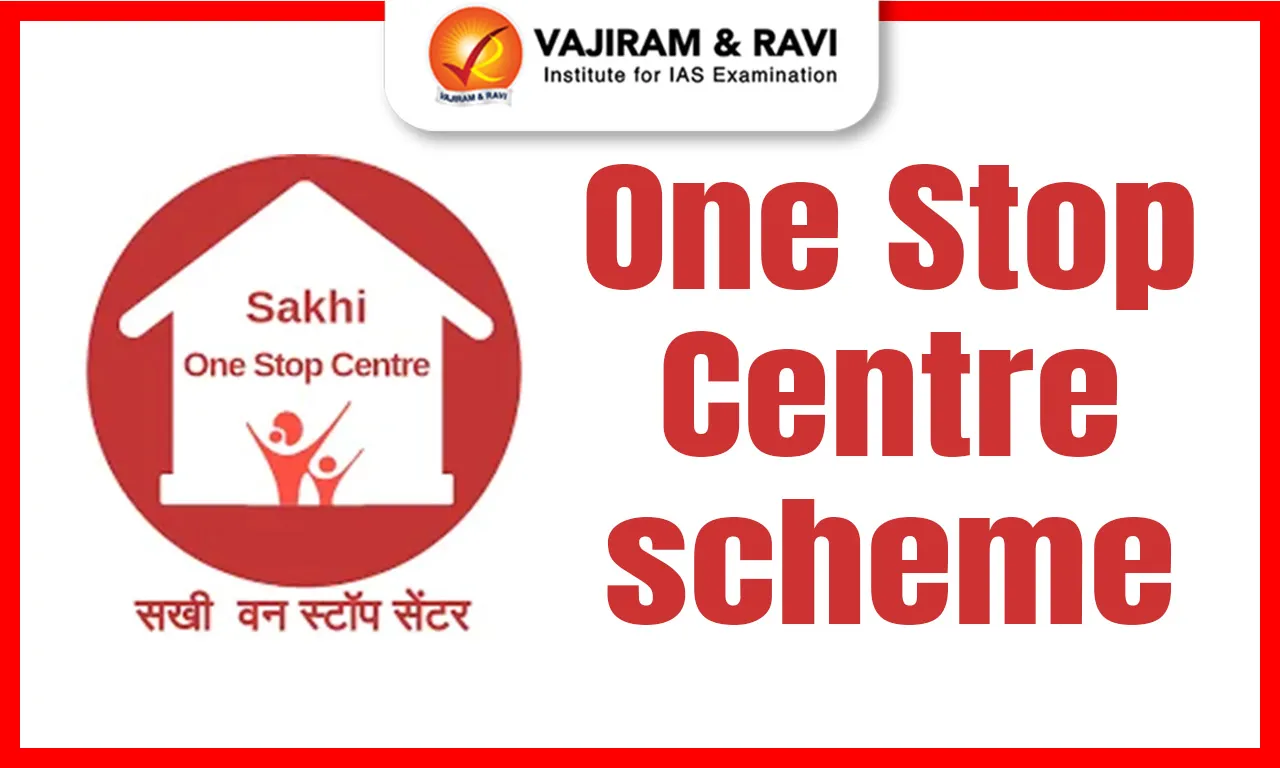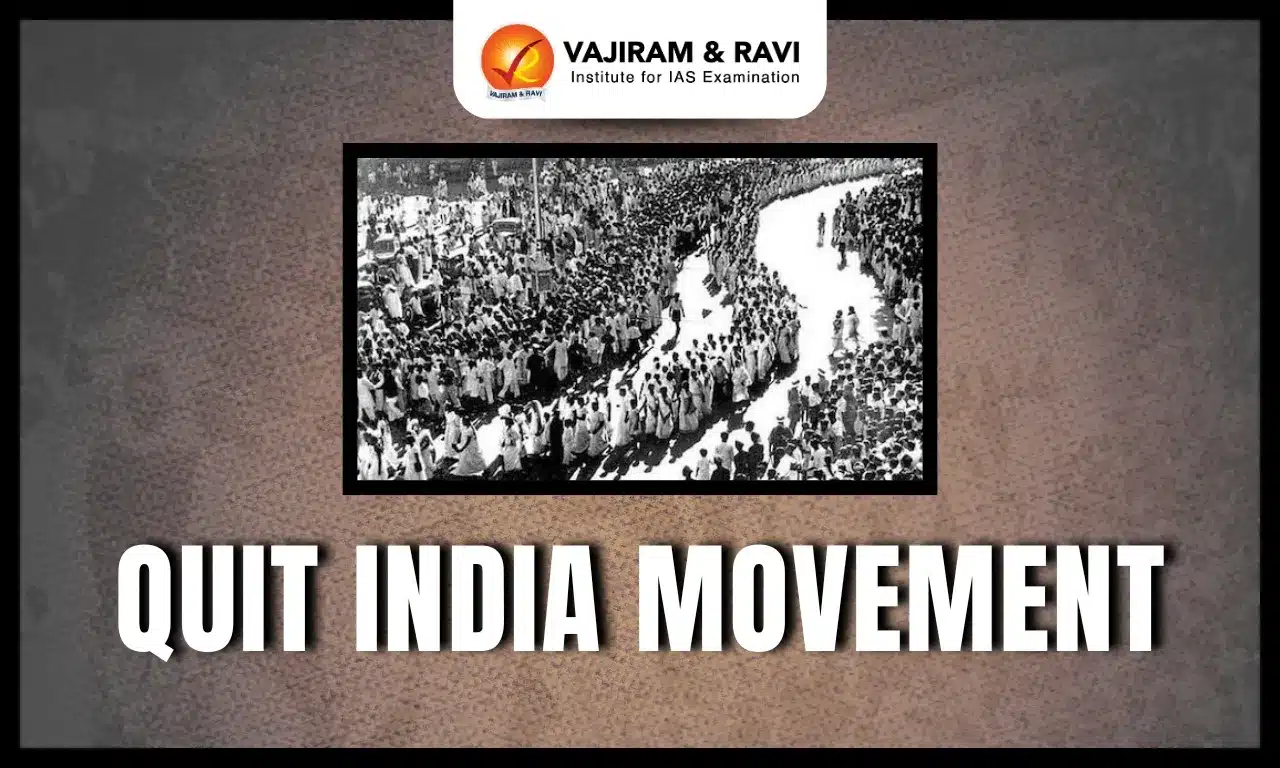One Stop Centre Scheme, also known as the Sakhi Scheme, is a flagship initiative by the Ministry of Women and Child Development (MWCD), Government of India. Launched on April 1, 2015, the scheme aims to provide integrated support and assistance to women affected by violence, both in private and public spaces, under one roof.
One Stop Centres offer a range of services, including medical aid, legal assistance, psycho-social counselling, and temporary shelter, ensuring a holistic approach to addressing violence against women. Since the financial year 2022–23, the scheme has been integrated into the Sambal sub-scheme under the umbrella of Mission Shakti.
About One Stop Centre Scheme
One Stop Centre Scheme (OSC), also known as the Sakhi One Stop Centre Scheme, is a flagship initiative by the Government of India aimed at supporting women affected by various forms of violence.
- Launched on April 1, 2015, under the Ministry of Women and Child Development, the One Stop Centres (OSCs) are established to assist women experiencing violence in both public and private settings—whether at home, in the community, or in the workplace.
- These centres cater to women enduring physical, sexual, psychological, emotional, or economic abuse, regardless of their age, caste, class, education level, marital status, ethnicity, or cultural background.
- Women who approach or are referred to OSCs due to incidents such as sexual harassment, assault, domestic abuse, human trafficking, honour-based violence, acid attacks, or witch-hunting receive comprehensive, specialised support and intervention services.
One Stop Centre Scheme Background
One Stop Centre Scheme background lies in the pressing need to offer integrated and immediate support to women survivors of gender-based violence.
- Before the establishment of OSCs, victims had to navigate multiple systems—such as the police, hospitals, and legal services—often without coordination, which added to their distress and delayed access to justice and care.
- Gender-based violence (GBV) is a widespread issue that transcends borders, affecting individuals regardless of class, culture, religion, or geography.
- The 1993 United Nations Declaration on the Elimination of Violence against Women defines GBV as acts likely to cause physical, psychological, or sexual harm to women.
- In India, GBV manifests in numerous forms, including domestic abuse, dowry-related violence, honour killings, acid attacks, and more.
- Recognising the need for a centralised support system, the Ministry of Women and Child Development launched the OSC Scheme on April 1, 2015, under the National Mission for Empowerment of Women.
One Stop Centre Scheme Objectives
The primary objectives of the One Stop Centre Scheme are to provide integrated support and assistance to women affected by violence, both in private and public spaces, and to facilitate immediate, emergency, and non-emergency access to a range of services under one roof. The scheme aims to:
- To deliver comprehensive assistance to women facing violence in both domestic and public settings through a unified platform.
- The scheme aims to ensure prompt access—both in emergencies and otherwise—to a wide array of services such as healthcare, legal aid, psychological care, and counselling, all available in one place to address every form of violence against women.
One Stop Centre Scheme Need
One Stop Centre Scheme need arises from the pervasive and multifaceted nature of violence against women in India. Women often face barriers such as social stigma, fear of retaliation, lack of awareness, and complicated legal and healthcare processes when seeking help.
- Before OSCs, survivors had to navigate a fragmented system, approaching police, hospitals, legal aid, and shelters separately, which led to delays and increased trauma.
- The One Stop Centre Scheme addresses these challenges by offering a centralised, survivor-friendly platform where all essential services are available under one roof.
- This integrated approach not only expedites the response to violence but also reduces the emotional and logistical burden on survivors.
- The One Stop Centre Scheme fulfils a critical gap in India’s response to gender-based violence, ensuring timely, coordinated, and compassionate care for women in distress.
One Stop Centre Scheme Services
One Stop Centre Scheme Services include emergency rescue, medical assistance, psychological counselling, legal aid, temporary shelter, and video conferencing facilities to support women facing violence and ensure timely access to protection and justice.
- Emergency Response and Rescue Services: One Stop Centres will coordinate with emergency services like 108 Ambulance, NHM, and local police to swiftly rescue women facing violence and refer them to appropriate healthcare centres or safe shelter facilities.
- Medical Assistance: Women experiencing violence will be referred to the nearest government or private hospital, where medical treatment and examinations will follow protocols set by the Ministry of Health and Family Welfare for such cases.
- Psycho-Social Support and Counselling: Trained counsellors will provide confidential psychological support and emotional guidance to victims of violence, helping them regain confidence and cope, in line with professional ethics and counselling protocols issued by authorities.
- Legal Aid and Counselling: Empanelled legal experts or members of legal services authorities will assist victims in understanding their rights, simplifying legal procedures, and ensuring representation, especially in sensitive cases like sexual assault or domestic violence trials.
- Shelter Services: Temporary shelter for up to five days will be offered at OSCs to affected women and their minor children. For extended stay needs, referrals will be made to recognized institutions like Swadhar Greh or Short Stay Homes.
- Video Conferencing Facility: To streamline legal proceedings, OSCs will provide video conferencing options, enabling survivors to record statements remotely for police or courts, in coordination with district judges and police as per legal provisions.
One Stop Centre Scheme Eligibility
One Stop Centre Scheme is open to all women, including girls under 18, who are victims of violence, regardless of caste, class, religion, region, marital status, or sexual orientation. For girls under 18 years, the One Stop Centres coordinate with authorities under the Juvenile Justice Act and the POCSO Act for appropriate support.
One Stop Centre Scheme Benefits
One Stop Centre Scheme benefits include immediate access to shelter, priority grievance registration, and essential services such as food, medical aid, clothing, and hygiene products for distressed women and their children in crisis.
- A woman facing distress can directly access the One Stop Centre (OSC) by reporting her case personally. Alternatively, someone else may file the complaint on her behalf, though complaints submitted by the victim herself are given top priority.
- Women in crisis can seek temporary shelter at an OSC for up to five days, and may be accompanied by their children. While girls of any age can stay with their mothers, boys above eight years of age are not permitted to remain at the centre with their mothers.
- During their stay, women are provided with essential services such as meals, basic medical care, clothing, and personal hygiene items, including sanitary pads.
Last updated on March, 2026
→ UPSC Notification 2026 is now out on the official website at upsconline.nic.in.
→ UPSC IFoS Notification 2026 is now out on the official website at upsconline.nic.in.
→ UPSC Calendar 2026 has been released.
→ UPSC Final Result 2025 is expected to be released soon.
→ Check out the latest UPSC Syllabus 2026 here.
→ Join Vajiram & Ravi’s Interview Guidance Programme for expert help to crack your final UPSC stage.
→ UPSC Mains Result 2025 is now out.
→ UPSC Prelims 2026 will be conducted on 24th May, 2026 & UPSC Mains 2026 will be conducted on 21st August 2026.
→ The UPSC Selection Process is of 3 stages-Prelims, Mains and Interview.
→ Prepare effectively with Vajiram & Ravi’s UPSC Prelims Test Series 2026 featuring full-length mock tests, detailed solutions, and performance analysis.
→ Enroll in Vajiram & Ravi’s UPSC Mains Test Series 2026 for structured answer writing practice, expert evaluation, and exam-oriented feedback.
→ Join Vajiram & Ravi’s Best UPSC Mentorship Program for personalized guidance, strategy planning, and one-to-one support from experienced mentors.
→ Check UPSC Marksheet 2024 Here.
→ UPSC Toppers List 2024 is released now. Shakti Dubey is UPSC AIR 1 2024 Topper.
→ Also check Best UPSC Coaching in India
One Stop Centre Scheme FAQs
Q1. What is the one stop Centre scheme?+
Q2. What is one stop center?+
Q3. What is the role of a case worker in one stop centre?+
Q4. What is the budget of one stop Centre?+
Q5. Who is eligible for the Sakhi scheme?+
Tags: one stop centre scheme quest UPSC Social Justice Notes














